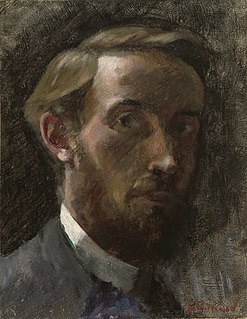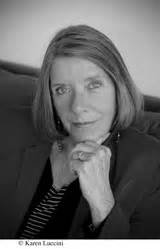A Quote by Edouard Vuillard
Nothing is important save the spiritual state that enables one to subjectify one's thoughts to a sensation and to think only of the sensation, all the while searching to express it.
Related Quotes
Love is not a feeling; it's a sensation. Drinking water when you're thirsty is a sensation, not a feeling. Being in nature or swimming in the sea is a sensation, not a feeling. Lying down when you're tired is sensational, not a feeling, although you may say it feels good. Feeling is an emotional interpretation of experience and these sensations don't need interpretation; they are just good or right. Making physical love rightly is a sensation, not a feeling. So is the love of God. The same goes for joy and beauty; both are sensational.'
The virtue of a faculty is related to the special function which that faculty performs. Now there are three elements in the soul which control action and the attainment of truth: namely, Sensation, Intellect, and Desire. Of these, Sensation never originates action, as is shown by the fact that animals have sensation but are not capable of action.
Death is nothing to us: for after our bodies have been dissolved by death they are without sensation, and that which lacks sensation is nothing to us. And therefore a right understanding of death makes mortality enjoyable, not because it adds to an infinite span of time, but because it takes away the craving for immortality.
To have Zen is to be in a state of pure sensation. It is to be freed from the grip of concepts, to see through them. This is not the same as rejecting conceptual thinking. Thoughts and words are in the world and are as natural as flowers. It is a mistake therefore to think that Zen is anti-intellectual.
What's clarity like? Try to remember that funny feeling inside your head when you had math problems too difficult to solve: the faint buzzing noise in your ears, a heaviness on both sides of your skull, and the sensation that your brain is twitching inside your cranium like a fish on the beach. This is the opposite sensation of clarity. Yet for many people of my era, as they aged, this sensation became the dominant sensation of their lives. It was as though day-to-day twentieth century living had become an unsolvable algebraic equation.







































